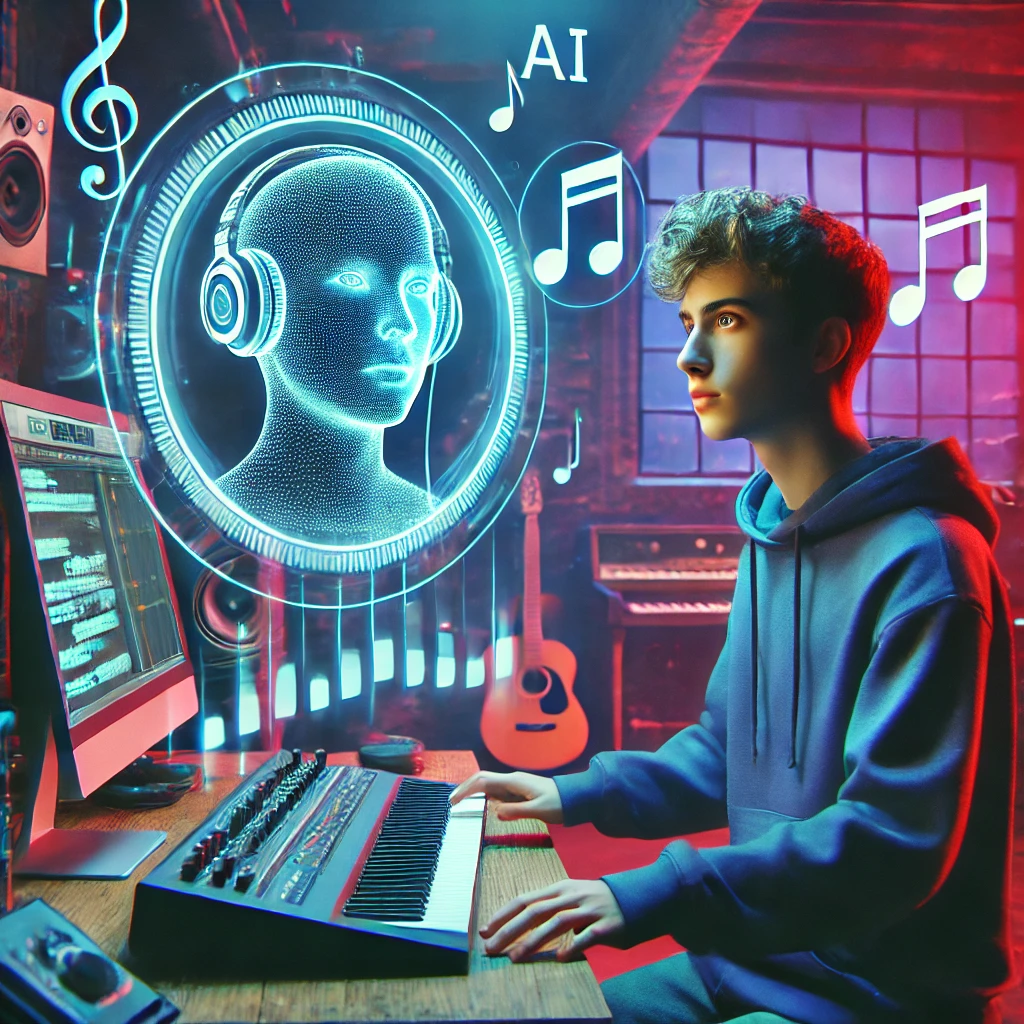AI in music: Study reveals how glitches and mistakes drive creative innovation
For decades, music innovation has thrived on unpredictability. The study highlights genres such as electronic, industrial, and glitch music, which intentionally incorporate technological flaws as aesthetic choices. This is in stark contrast to AI models, which are designed to generate polished outputs by managing uncertainty as an input variable.

Artificial intelligence is increasingly shaping creative fields, including music. While AI-powered tools promise efficiency and automation, their impact on the creative process is complex. A recent study, "Emerging Paradigms in Music Technology: Valuing Mistakes, Glitches, and Uncertainty in the Age of Generative AI and Automation" by Miguel Loor Paredes, published in AI & Society, delves into the interplay between human creativity and generative AI in the music industry. This research challenges the dominant narrative that AI’s goal is to eliminate uncertainty, arguing instead that unpredictability is a vital component of artistic expression.
The value of mistakes in music technology
The study, based on ethnographic research in Melbourne, Australia, explores how music technologists, including researchers, developers, and artists, perceive the role of mistakes and glitches in their work. Traditionally, AI systems are designed to minimize errors and optimize outputs, yet the findings suggest that many musicians and technologists embrace mistakes as catalysts for creativity.
For decades, music innovation has thrived on unpredictability. The study highlights genres such as electronic, industrial, and glitch music, which intentionally incorporate technological flaws as aesthetic choices. This is in stark contrast to AI models, which are designed to generate polished outputs by managing uncertainty as an input variable. The research demonstrates that many artists resist this controlled approach, instead valuing the serendipity that comes from unintended outcomes.
Uncertainty as a driving force in creative work
Paredes’ study argues that uncertainty is not just a limitation but a shaping force in the creative process. Through interviews and observations, the research uncovers that musicians and developers working with AI technology often seek unpredictability rather than avoid it. Some musicians, for instance, intentionally introduce randomness into AI-generated compositions, using the resulting anomalies to inspire new directions in their work.
While AI-generated music often aims to mimic established styles, the study’s participants question whether AI can truly replicate human creativity. Many expressed skepticism about AI’s ability to generate music with the same emotional depth as human-created compositions. Others acknowledged AI’s potential as a collaborative tool rather than a replacement for human artistry. This reflects broader concerns within the creative industries about AI’s role: should it enhance human expression, or is it being positioned as a substitute for it?
Ethical and industry implications
The findings raise critical ethical and industry questions about AI’s impact on music production. As AI-generated music becomes more prevalent, concerns about authorship, originality, and the commercialization of creativity intensify. The research points to a growing divide between industry-driven narratives that champion AI as a democratizing force in music and the perspectives of artists who fear that reliance on AI could lead to homogenized creativity.
One of the key takeaways is the misalignment between AI’s optimization-driven design and the inherently unpredictable nature of artistic creation. AI models, trained on vast datasets, are excellent at producing variations of existing music but struggle with true originality. This has led some artists to reject AI tools outright, while others experiment with ways to integrate them into their practice without compromising artistic integrity.
Redefining AI’s role in music creation
The study ultimately suggests a need to redefine AI’s role in creative workflows. Rather than striving for perfection, AI should be designed to accommodate unpredictability, allowing for more dynamic human-machine collaborations. The study advocates for a shift in how AI is conceptualized within the creative industries - not as a tool for efficiency, but as a means of enhancing artistic exploration.
As AI continues to evolve, its role in music technology remains an open question. Will AI be used to augment human creativity, or will it drive a shift toward standardized, risk-averse music production? The answer depends on how the technology is developed and, crucially, how musicians choose to engage with it. This research highlights the importance of keeping the human element at the forefront of AI’s creative applications, ensuring that innovation does not come at the cost of artistic spontaneity.
- FIRST PUBLISHED IN:
- Devdiscourse










